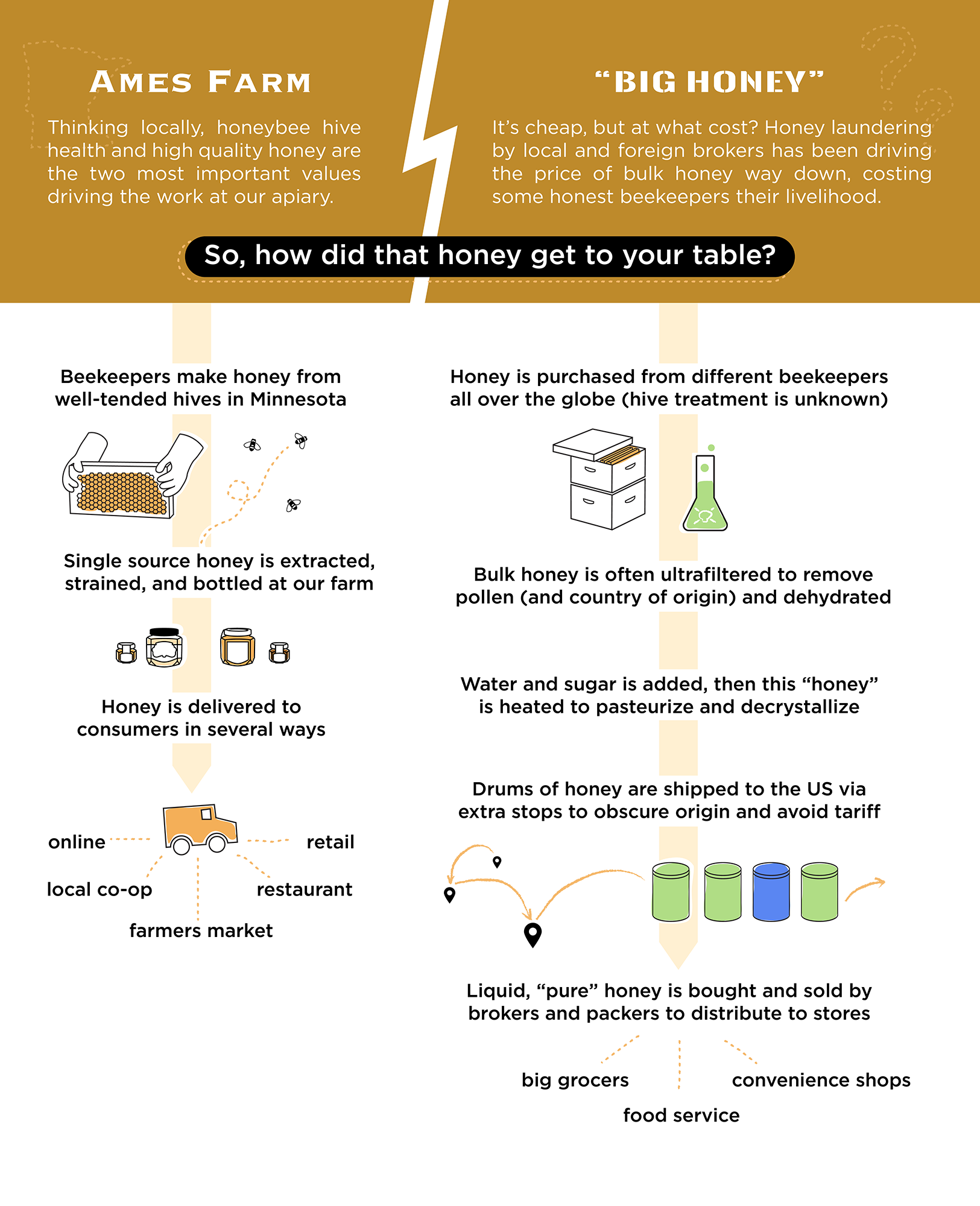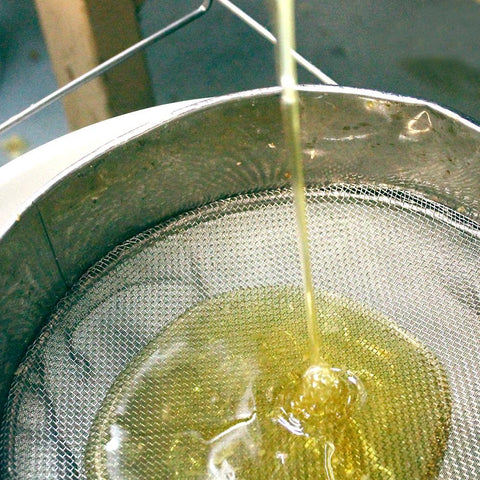In its debut episode "Lawyers, Guns, and Honey," a new Netflix-produced show Rotten explores the rise of corruption and profiteering in the honey industry. The beautifully-made documentary not only shows the typical process in the industrial honey production, but also delves into "Honeygate," a successful sting operation that revealed the flow of fake honey from China.
The vast majority of honey for sale in the United States is imported from a foreign country and is not labeled clearly indicating the country of origin,
Highly-processed "honey" has become an issue at the beginning of this century, in response to an incredible demand for honey and the decline of bee population all over the world. By complicating the nature of honey production through dehydration, ultrafiltration, and flavoring, large industrial honey brokers and packers are undercutting both consumers and real, honest beekeepers. See below, as we detail our own process for making the sweet stuff the right way as opposed to the "Big Honey" way:

In either instance, the end consumer expects to get an appealing, yet affordable product. On the "Big Honey" side, can the end product actually be considered honey? Looks can be deceiving as the honey may appear perfectly golden and viscous, but professional mellisopalynologists (pollen analysts) have all the tools to determine honey's authenticity (or lack thereof). "Big Honey" often fails this test, yet fake honey continues to show up at big grocery stores and in food production, unbeknownst to the consumer.
Consider the hard work that honeybees put into making real honey, a typical hive traveling approximately 55,000 miles to make a pound of the good stuff. Real honey has been and will always be a healthful, precious commodity, so expect to pay a fair price for the bees' labor. Luckily for you, we strive to keep our high-quality local honey and beeswax items affordable, and no matter where you are in the USA you can always visit our webstore where shipping is free for orders over $35, or if you live in the Twin Cities we are at the Mill City Farmers Market year around. Unlike "Big Honey," you can simply call us with questions about the source of our products and how we get from flower to jar within a season.

We love that Rotten's episode on honey laundering points out the necessity to think small and local when it comes to finding good food. By supporting local honey producers like Ames Farm, honey lovers not only keep us in business, but also help us take good care of our honeybee hives and foraging pasture. Here is the link for Rotten's first installment in its 6-part series !


